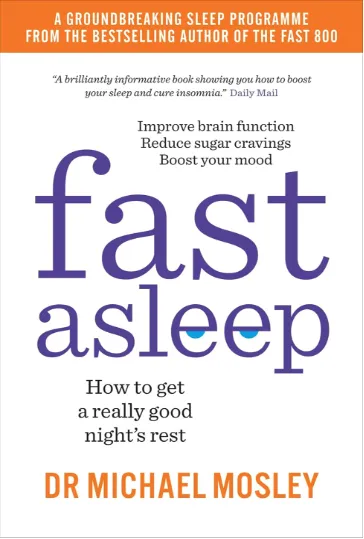The Hidden Tax of Fear: Why Psychological Safety Is Your Great Performance Lever
Victoria Canham • 05 November 2025 • 7 min read

"A shared belief held by members of a team that the team is safe for interpersonal risk-taking."
- Amy Edmondson
In my first article in the series, we explored what psychological safety really means and why it's so frequently misunderstood. Now we need to talk about why this matters in business terms that go far beyond "feeling good" or creating a "nice" workplace.
The absence of psychological safety costs your organisation money, talent, innovation, and competitive advantage. But unlike most business costs, this one doesn't appear on any spreadsheet. It's hidden, dispersed, and often attributed to other causes entirely.
After years of culture transformation work, I've seen these costs up close. More importantly, I've learned to recognise the patterns that signal when fear is quietly draining an organisation's capacity to perform.
The Costs You Can't See (But Are Definitely Paying)
When employees don't feel psychologically safe, they operate in a fundamentally different mode. Instead of focusing their cognitive energy on solving problems, creating value, or serving customers, they redirect that energy toward self-protection.
This cognitive tax shows up in ways that are difficult to measure but impossible to ignore once you know what to look for:
1. The Innovation Deficit
Innovation requires risk. Not reckless risk, but the willingness to propose ideas that might fail, challenge conventional thinking, or admit you don't have all the answers.
In psychologically unsafe environments, people learn to keep their ideas to themselves. The designer who has a radical concept for improving the product never mentions it because last time she suggested something unconventional, she was dismissed. The engineer who sees a better technical approach stays quiet because questioning the current direction might make him look like he's not a team player.
The result? Your organisation innovates at a fraction of its capacity. The breakthrough ideas exist—they're just locked inside people who've learned it's safer to stay quiet.
2. The Problem Escalation Pattern
Problems that could be resolved quickly and cheaply when they're small become expensive crises when they're allowed to grow.
I've watched this pattern countless times: Someone spots an issue early. Maybe it's a flaw in a project plan, a problem with a vendor, or a misalignment in strategy. But they don't raise it because:
⏺️ They fear looking negative or not being a team player
⏺️ Last time they raised a concern, they were told they were overthinking it
⏺️ The person responsible is senior and doesn't react well to challenge
⏺️ They're not entirely sure, and they don't want to look foolish if they're wrong
So they stay quiet. The problem grows. By the time it can no longer be ignored, it's ten times more expensive to fix and has created secondary problems throughout the organisation.
The cost of this pattern isn't just the crisis itself—it's the opportunity cost of all the resources diverted to firefighting instead of building.
3. The Knowledge Hoarding Phenomenon
In psychologically safe environments, knowledge flows freely. People ask questions, admit gaps in understanding, and share information openly because there's no penalty for not knowing everything.
In unsafe environments, the opposite happens. People hoard knowledge to protect their position. They don't ask questions because it might reveal what they don't know. They don't share insights freely because knowledge is one of the few sources of security they have.
The result is knowledge silos. Critical information sits in individual heads instead of being distributed across the team. When people leave, they take that knowledge with them. Decision-making becomes slower and poorer because the right information doesn't reach the right people at the right time.
4. The Talent Exodus
Your best people, the ones with the most options, won't tolerate psychologically unsafe environments indefinitely.
They might stay for a while because they believe in the mission, because they're learning valuable skills, or because the compensation is exceptional. But eventually, the cognitive load of constant self-monitoring and the frustration of not being able to contribute fully becomes too much.
They leave. Often not making a fuss about it. They simply tell you they've received an offer they can't refuse, thank you for the opportunity, and walk out the door.
And with them goes not just their talent, but their institutional knowledge, their relationships with clients or stakeholders, and the investment you made in developing them.
The immediate cost is recruitment and onboarding. The hidden cost is the compounding effect on team morale, the loss of expertise, and the signal it sends to others who are on the fence about staying.
5. The Decision-Making Degradation
Perhaps the most dangerous cost is what happens to decision-making quality.
In psychologically unsafe cultures, leaders receive filtered information. Their teams tell them what they think the leader wants to hear, not what the leader needs to know. Dissenting opinions are softened or eliminated entirely. Risks are downplayed. Problems are hidden until they can't be hidden anymore.
The result is that leaders make decisions based on incomplete or inaccurate information. They think they have consensus when they actually have compliance. They believe everyone is aligned when people are simply too afraid to voice their doubts.
This is how organisations make catastrophic strategic errors. Not because leaders are incompetent, but because they're operating with a distorted picture of reality that their culture has created.
The Compounding Effect Across the Employee Journey
These costs don't exist in isolation. They compound at every stage of the employee experience:
During recruitment and onboarding: New hires quickly learn what's really acceptable. They watch how questions are received, how mistakes are handled, and whether people speak freely in meetings. If they sense fear, they either adapt to the culture (becoming part of the problem) or begin looking for the exit immediately.
During performance and development: Without psychological safety, feedback becomes meaningless. People don't raise developmental needs because it might signal weakness. Managers don't give honest feedback because it's uncomfortable. Performance reviews become exercises in documentation rather than genuine development conversations.
During team collaboration: Projects take longer and produce poorer outcomes because people don't surface concerns, challenge assumptions, or admit when they're struggling. Meetings become performative rather than productive.
During organisational change: Change initiatives fail because people don't voice their concerns about implementation, don't ask clarifying questions, and don't flag problems early. Leaders mistake silence for buy-in and are blindsided when the initiative collapses.
At exit: Even when people leave, you often don't get honest feedback about why. Exit interviews are sanitised because people don't want to burn bridges. Not to mention the feedback that just goes straight in the bin. So you never learn what really drove them away, and you continue making the same mistakes with the next cohort.
Why This Matters More Than Ever
The business case for psychological safety has always been strong, but it's become critical in the modern context:
Innovation is your competitive advantage: In industries where products and services can be quickly copied, your ability to innovate faster than competitors is often the only sustainable advantage. You can't afford to have innovation throttled by fear.
Complexity requires collaboration: Modern challenges are too complex for individual heroes. You need genuine collaboration where people can admit what they don't know and ask for help. That requires safety.
Speed matters: Markets move faster than ever. You need problems surfaced immediately, not hidden until they're crises. You need decision-making that's fast and good, which requires honest input from everyone.
Talent has options: In competitive talent markets, you can't afford to lose your best people because your culture is exhausting. They have choices, and they'll exercise them.
Remote and hybrid work raises the stakes: When teams aren't co-located, the subtle cues that might have indicated problems are harder to spot. You need people to explicitly voice concerns rather than hoping you'll notice. That only happens if they feel safe doing so.
The Real Return on Investment
Here's what organisations gain when they build genuine psychological safety:
Earlier problem detection: Issues surface when they're small and cheap to fix, not when they're expensive crises.
Better decision-making: Leaders receive honest input, including dissenting opinions and uncomfortable truths. Decisions are based on reality, not filtered optimism.
Faster innovation: People propose ideas freely, knowing that failure is part of learning. The best ideas rise faster because they're tested against honest critique rather than polite nodding.
Higher retention: Talented people stay longer because they can bring their authentic selves to work and contribute fully without constant self-monitoring.
Improved learning velocity: Teams learn faster because mistakes are discussed openly, knowledge is shared freely, and people ask questions without fear of judgment.
Genuine accountability: When people feel safe, you can have real accountability. The problem with low psychological safety isn't that standards are too high—it's that standards become impossible to maintain because people hide problems rather than address them.
This Isn't a Soft Issue
The language around psychological safety sometimes makes it sound like a "people issue" separate from business performance. That framing is fundamentally wrong.
Psychological safety is a performance issue. Full stop.
It determines whether your organisation can access the full cognitive capacity, creativity, and expertise of your people, or whether significant portions of that capacity are diverted to self-protection and impression management.
It determines whether problems are solved early and cheaply, or fester into expensive crises.
It determines whether you can make good decisions based on accurate information, or whether your decisions are based on what people think you want to hear.
When I work with organisations on culture transformation, we start by quantifying these costs. Not with elaborate surveys or expensive diagnostics, but by asking leaders to estimate:
✳️ How many problems could have been caught earlier if someone had spoken up?
✳️ How many talented people have left in the last year, and what did it really cost to replace them?
✳️ How many initiatives failed or underperformed because people didn't voice concerns during implementation?
✳️ How many innovative ideas never made it into the room because people kept them to themselves?
The numbers are always sobering. The hidden tax of fear is enormous.
What Comes Next?
Understanding the cost is the first step. But recognising you have a problem doesn't solve it.
In my next article, I'll introduce the framework I use to build psychological safety, four practical pillars that connect directly to the employee journey and can be implemented without massive investment.
I’m not giving you abstract concepts; these are specific, observable elements that you can assess, develop, and measure. More importantly, they're grounded in leadership behaviour and cultural systems, not expensive bolt-on solutions.
Psychological safety doesn't require massive budgets. It requires the right approach, genuine commitment, and expertise in culture and leadership.
That's what we'll explore next.
This is Article 2 in a series on Psychological Safety in the Workplace. Read Article 1: "Psychological Safety: The Misunderstood Foundation of High Performance"
Coming next in this series:
Article 3: The Four Cornerstones of Psychological Safety (my framework)
Article 4: Beyond Surveys - Observable Patterns That Reveal Safety Gaps
Article 5: Building Psychological Safety Without Breaking the Bank
More Articles About Psychological Safety:
This is Article 2 in a series on Psychological Safety in the Workplace. Follow along as we explore how to build cultures where people can do their best work.
♦️ Hi. I'm Vicki, and I help businesses build high-performing, loyal teams by mastering the employee journey. I partner with leaders to drive tangible change, transforming company culture from a pretty promise on a slide deck into a daily reality. My approach goes beyond outdated HR strategies and gets to the heart of what truly motivates and retains your people.
Here's how I can support you:
Consulting & Coaching
I work directly with business leaders to diagnose and transform their employee experience, from culture to performance management. If you're ready to stop the cycle of burnout and build a team that thrives, not just survives, let's talk.
Click here to book a free 30-minute strategy call. No fluff, no sales pitches, just a direct conversation about your biggest challenges.
Talks & Keynotes
I deliver engaging keynotes that go beyond theory to provide actionable insights on leadership, culture, and performance. My talks are perfect for leadership teams and conferences looking to inspire real change.
Workshops & Training
My bespoke workshops and training sessions are designed to equip your leaders with the practical tools they need to build, manage, and retain exceptional teams. These are highly interactive sessions focused on creating measurable improvements in your business.
👉 Book a Clarity & Culture Call
Follow me on LinkedIn for more insights on building high-performing teams in 2025.
Comment On This Article
Recommended Reading
Fast Asleep: How to get a really good night's rest by Dr Michael Mosley
A good night's sleep is essential for a healthy brain and body. So why do so many of us struggle to sleep well? In Fast Asleep, Dr Michael Mosley explains what happens when we sleep, what triggers common sleep problems and why standard advice rarely works.
Prone to insomnia, he has taken part in numerous sleep experiments and tested every remedy going. The result is a radical, four-week programme, based on the latest science, designed to help you re-establish a healthy sleep pattern in record time.
With plenty of surprising recommendations - including tips for teenagers, people working night shifts and those prone to jet lag - plus recipes which will boost your deep sleep by improving your gut microbiome, Fast Asleep provides the tools you need to sleep better, reduce stress and feel happier.
We’re not just about overcoming obstacles, we’re about transforming lives.
Book Recommendation

Victoria Canham - Performance and People Strategic Partner
Victoria Canham is an ICF-accredited Certified Professional Coach and the founder of Victoria Canham Consultancy. We are a specialist performance consultancy partnering with senior leaders and HR teams to elevate culture, leadership, and employee experience. Rooted in behavioural insight and change expertise, we diagnose what's truly holding performance back, co-creating practical, strategic interventions that drive sustainable business results and build workplaces that work—for people and performance.
Follow us on social media

💸 Your people don’t leave for money. 💣 They leave for culture. 🔧 I fix that. 🏆 Retention & performance strategy that works.
Book a ☎️ | Fix the Leaks
© Copyright 2026 Victoria Canham Coaching | Website built by Me on FEA Create (aff.)
Performance Coaching Reading, London, Berkshire, Oxford | St George's Road, Reading, Berkshire, United Kingdom, RG30 2RL | +44 7377 527 529 | [email protected] Open Monday to Friday 9 am until 5 pm
